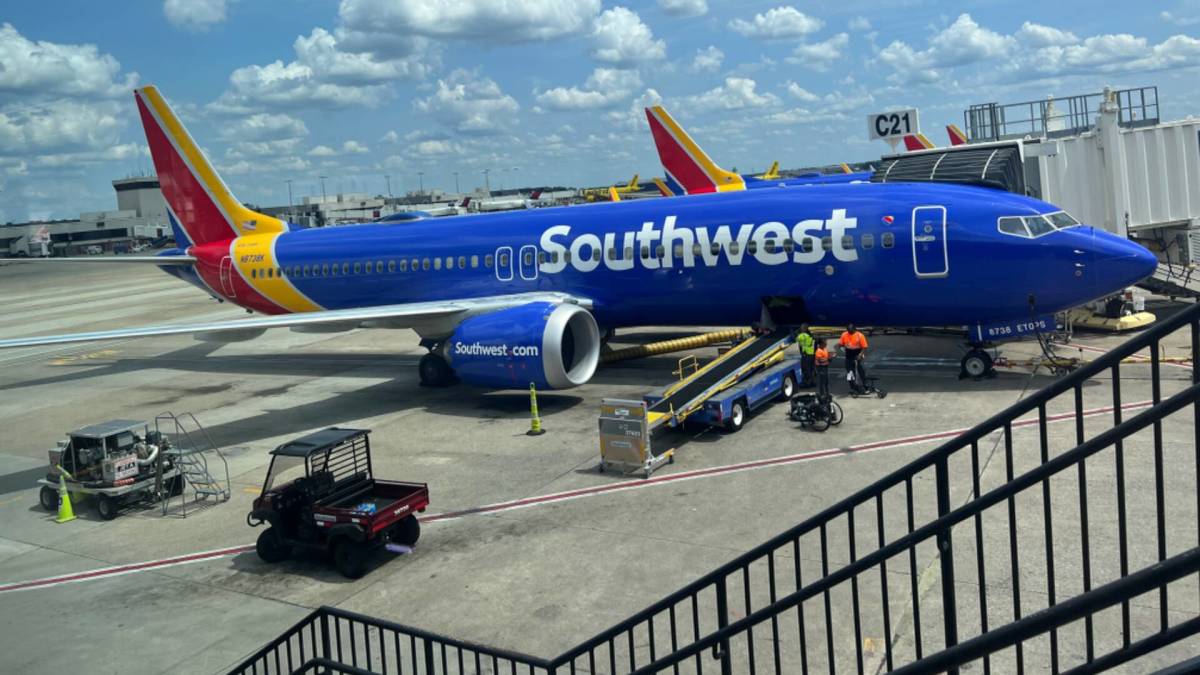
When it comes to letting their flight attendants and other workers express their political views, airlines are often in a tough spot between encouraging personal expression and avoiding the kind of arguments that broke out last month when a JetBlue Airways (JBLU) passenger was accused of “causing a disturbance” and had his return ticket canceled after bringing up an attendant’s “Free Palestine” pin.
As the story started picking up steam, JetBlue quickly changed its policy to ban all political displays on the uniform worn by its staff. While it previously allowed flight attendants to put on one pin of their choosing, the airline felt that this was necessary in an election year and a time when tensions run high around differing stances on Israel’s war in Gaza.
Related: JetBlue bans political displays after antisemitism accusations
Dallas-based Southwest Airlines (LUV) ran into a similar problem when in the fall of 2022 a Texas judge ordered it to pay out $800,000 to a former flight attendant terminated after sending letters arguing that Southwest should take a stronger stance against abortion rights and calling the head of the union representing her “despicable” for attending the 2017 Women’s March in Washington, D.C.
Southwest hopes to appeal ruling that it discriminated against flight attendant’s anti-abortion views
The jury and U.S. District Judge Brantley Starr ultimately sided wIth Charlene Carter and ordered Southwest to both pay the compensation (brought down for the initial $5.1 million it found the airline owed her) and have the lawyers involved in the incident undergo religious liberty training. In his ruling, Starr (who was nominated to the bench by President Donald Trump in 2017) wrote that “bags fly free with Southwest but free speech didn’t fly at all.”
More on travel:
- Another National Park just made it more difficult for you to visit
- Delta Air Lines makes a baggage change that travelers will like
- United Airlines passenger incident triggers quick response
Southwest, which argued that Carter was terminated not due to her religion but because of the “hostile and graphic messages” she kept sending to other colleagues, is now set to appeal the decision in court on June 3.
Related: Get the best cruise tips, deals, and news on the ships from our expert cruiser
Here are some of the other reasons airlines have fired workers (and later regretted it)
In February 2024, Finland’s flagship carrier Finnair (FNNNF) also ran into trouble when a court ordered it to pay 21,000 Euros (roughly $22,770 USD) to one of the flight attendants it fired for accessing the Wi-Fi travelers use during the flight for personal use.
The airline had been trying to crack down on these actions and insist that the flight attendants who work for them be completely phone-free throughout the flight but the behavior has been so prevalent that over 700 workers were found to do this periodically while the airline ended up firing only employees who logged on more than 36 times — a policy, as the Helsinki court found, that was unevenly applied.
While that is what led to the successful ruling for the one flight attendant, many also argued that expecting flight attendants to not check their phones even once during a quiet period on the flight (especially if they’re sitting in the back and waiting for something to do) is not a reasonable expectation. Only one flight attendant took the termination to court but the ruling will likely influence Finnair to slacken its policy going forward.
Related: Veteran fund manager picks favorite stocks for 2024







